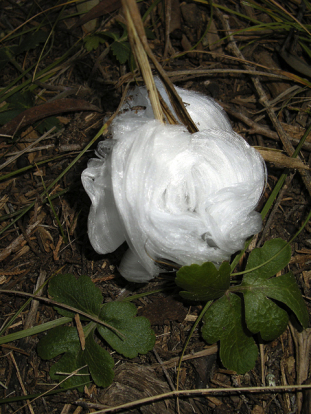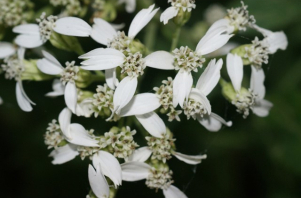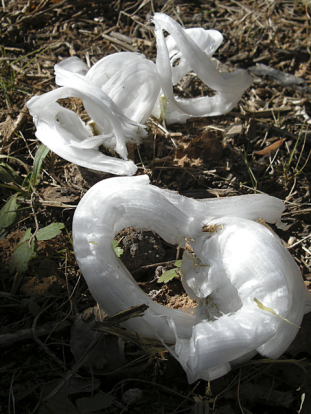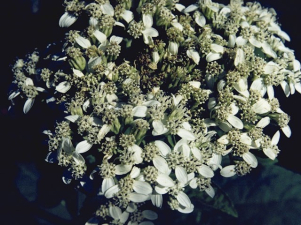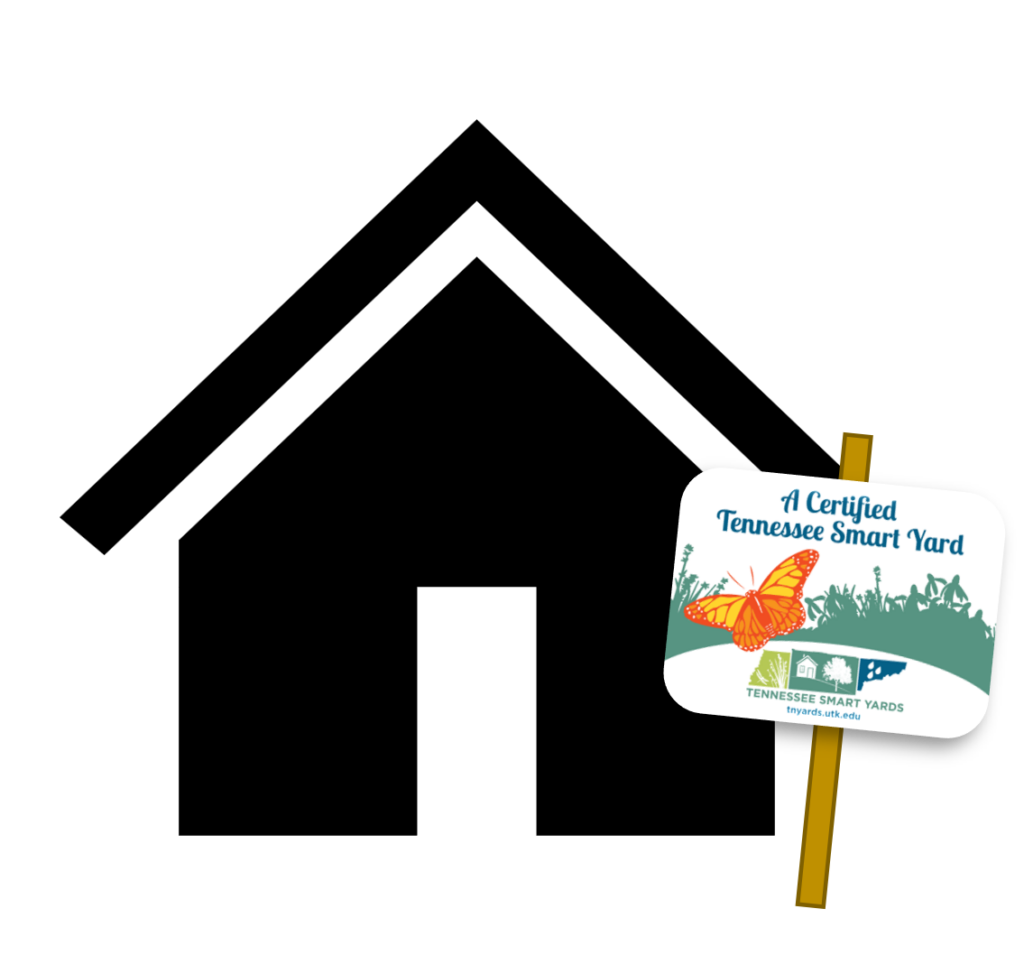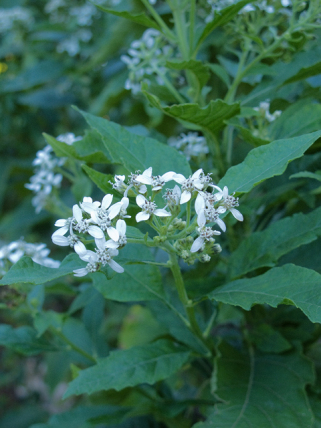
Common Name: Frost Weed, Iceplant, Winged Stem, White Crownbeard, Iceweed, Richweed, Squawweed
Part to full shade; medium to moderately dry moisture level; sandy, clay, or loamy soil; pH adaptable. 3 – 6 feet height, blooms in fall, white flowers. Spreads rapidly by both rhizomes and self-seeding.
Germination Code: Sow seed directly outdoors in the fall. Can divide roots in winter while the plant is dormant.
Native Region: Sow seed directly outdoors in the fall. Can divide roots in winter while the plant is dormant.
An easy-to-grow member of the Aster Family. Best for naturalizing and not in a formal garden. Since it is a tall, dominating plant, it is best located at the back of the garden. Spreads quickly once established and can form sizeable colonies. Flower heads are 3 – 6 inches across. Large leaves give a tropical appearance to the plant. When winter weather brings ice, water seeps from the stems and freezes into fascinating ice sculptures, hence many of its common names. Native to moist forest edges, open woods, and on streambanks. Flowers are an exceptional nectar source for both butterflies and bees.
